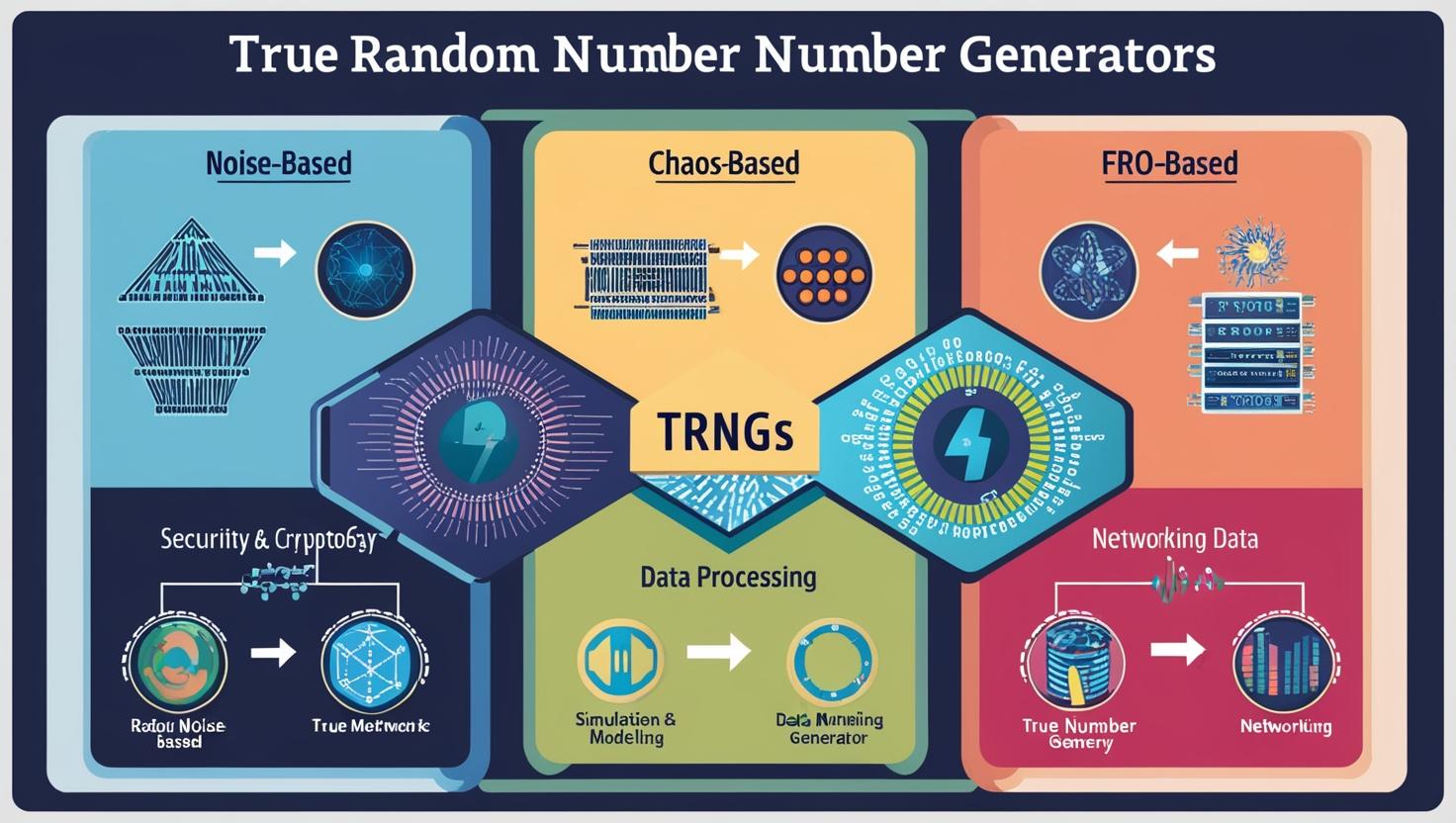As global cybersecurity threats intensify and data encryption becomes a top priority for enterprises, the True Random Number Generator (TRNG) market is emerging as a key focus for investors. TRNGs, which produce completely unpredictable and non-deterministic numbers, are becoming a fundamental component of secure cryptographic systems—making them indispensable in a world increasingly reliant on digital privacy, blockchain, and secure communication.
Rising Demand for Cryptographic Security
Encryption is only as strong as the randomness behind it. Traditional pseudorandom number generators (PRNGs), which rely on algorithms and initial seeds, are predictable to an extent and thus susceptible to sophisticated attacks. In contrast, TRNGs derive randomness from physical phenomena, such as electronic noise or quantum processes, making them far more secure and suitable for cryptographic applications.
With the exponential growth of digital transactions, cloud computing, IoT devices, and blockchain-based platforms, the need for robust encryption mechanisms has never been higher. Governments, financial institutions, and technology firms are actively integrating TRNGs to strengthen their security architectures, fueling market growth.
Market Growth and Projections
The true random number generator industry is expected to grow from USD 3.81 billion in 2025 and is estimated to reach USD 7.71 billion by 2030; it is expected to grow at a Compound Annual Growth Rate (CAGR) of 15.1% from 2025 to 2030., driven by a surge in demand for advanced encryption technologies. Hardware-based TRNGs are expected to dominate due to their reliability and high entropy output, particularly in sectors like defense, finance, healthcare, and telecommunications.
Key players such as Apple Inc. (US), Intel Corporation (US), Qualcomm Technologies, Inc. (US), Infineon Technologies AG (Germany), Microchip Technology Inc are at the forefront of innovation, developing new TRNG solutions based on quantum mechanics and nanotechnology. Meanwhile, startups in the quantum computing and cybersecurity space are also drawing venture capital, aiming to carve out niches in this highly technical market.
Download PDF Brochure @ https://www.marketsandmarkets.com/pdfdownloadNew.asp?id=224265452

Investment Momentum Builds
The strategic value of TRNG technology is becoming increasingly evident to investors. As regulatory pressures for data protection increase—driven by legislation like the EU’s GDPR, California’s CPRA, and global cybersecurity frameworks—companies are doubling down on encryption, making TRNGs a long-term necessity.
Venture capital firms, private equity funds, and corporate investors are now pouring money into TRNG developers, especially those leveraging quantum-based randomness or offering scalable hardware modules for consumer devices, data centers, and cloud security.
Key Challenges and Opportunities
Despite the promising outlook, the TRNG market faces several challenges:
-
High R&D costs for developing and validating true randomness
-
Integration complexity with existing hardware systems
-
Limited standardization across industries for TRNG quality and certification
However, these hurdles also present opportunities. Companies that can demonstrate certified entropy levels, high throughput, and easy integration into existing chips or cloud environments will gain a competitive edge. Furthermore, partnerships between semiconductor companies and cybersecurity firms are expected to drive cross-sector innovation.
Future Outlook
As cyber threats grow in scale and sophistication, TRNGs are moving from a specialized cryptographic tool to a mainstream security necessity. This shift is attracting investor attention, with the market now viewed as a high-growth, high-impact segment within the broader cybersecurity and semiconductor industries.
For investors, the message is clear: The TRNG market is no longer a niche—it’s a strategic opportunity tied to the future of digital trust, privacy, and secure computing.
Frequently Asked Questions (FAQ)
1. What is a True Random Number Generator (TRNG)?
A True Random Number Generator (TRNG) is a device or system that generates completely unpredictable numbers by measuring inherently random physical phenomena—such as electronic noise, radioactive decay, or quantum fluctuations. Unlike pseudorandom number generators (PRNGs), TRNGs are not algorithm-based and are ideal for high-security encryption.
2. Why is the TRNG market gaining investor attention?
The TRNG market is attracting investors due to:
-
Growing global cybersecurity concerns
-
Rising adoption of encryption in finance, defense, and IoT
-
Technological advancements in quantum computing and hardware security
-
Increasing regulatory demand for stronger data protection measures
3. Which industries are driving demand for TRNGs?
Key sectors include:
-
Finance and banking (for secure transactions and authentication)
-
Telecommunications (for encrypted communication)
-
Defense and aerospace (for high-grade cryptographic applications)
-
Healthcare (for data privacy)
-
Blockchain and cryptocurrency (for secure wallet generation and smart contracts)
